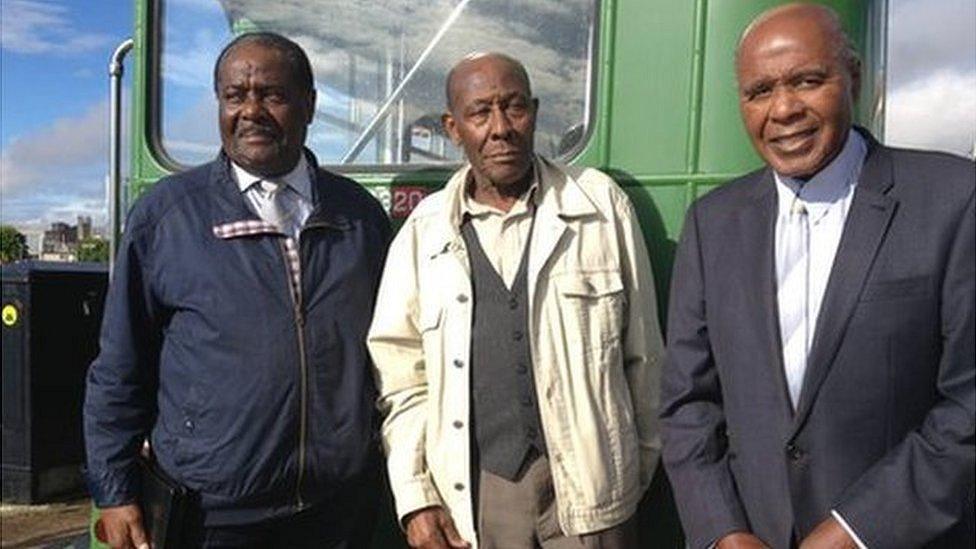New outdoor gallery honours Bristol bus boycott
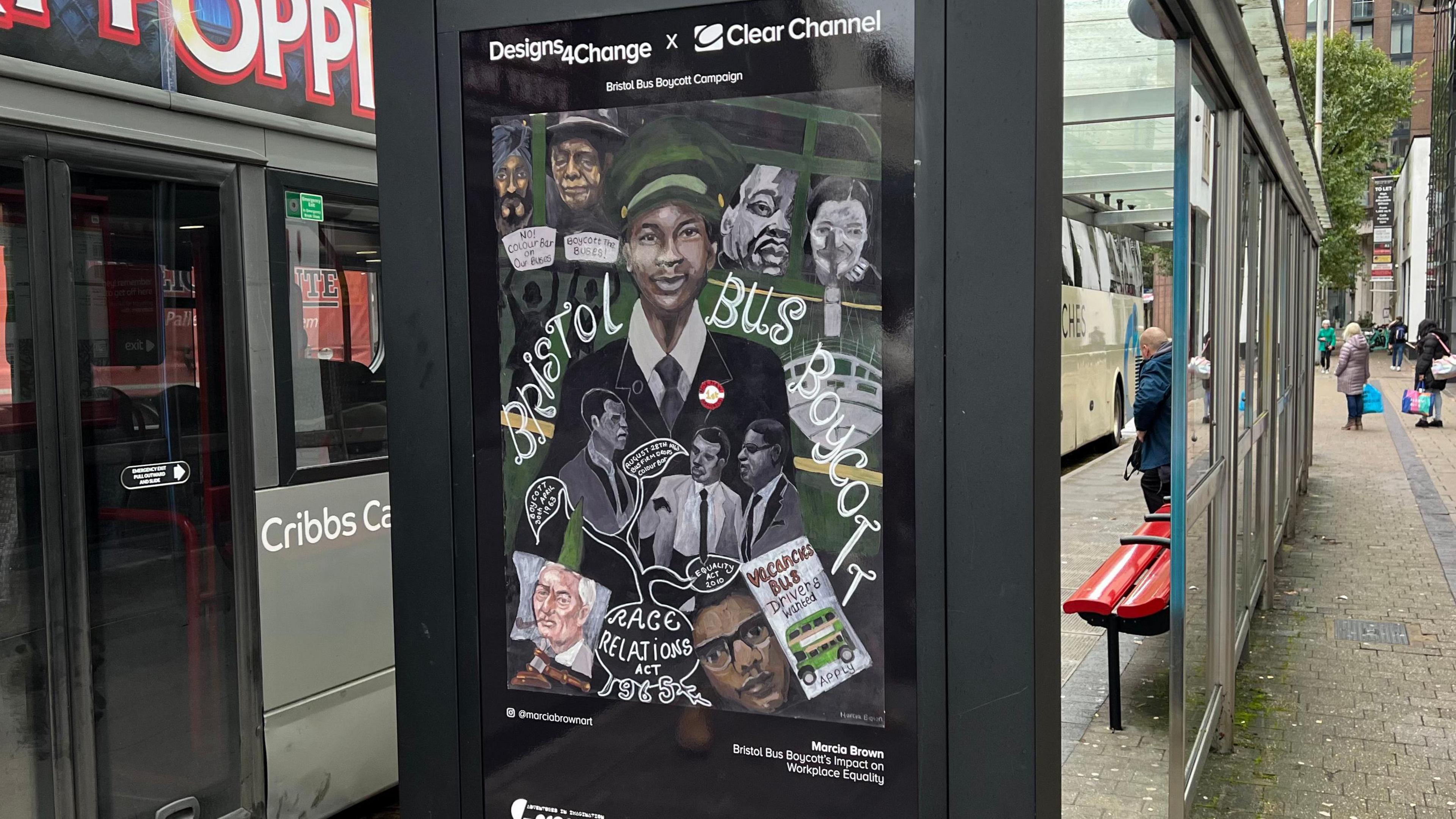
The designs will will be displayed on 45 bus stops across the city
- Published
A new outdoor gallery showcasing the legacy of the Bristol Bus Boycott is now on display.
Four winners designed posters that are now appearing at bus stops across Bristol city centre, commemorating the watershed protests in 1963.
The boycott was sparked when the Bristol Omnibus Company refused to hire black drivers and Guy Bailey OBE was barred from a job interview.
Marcia Brown, whose design won a city-wide competition, said: "For me this is a story that needs to be known, to the point that it needs to be on the curriculum."
Think tank Curiosity UnLtd teamed up with Clear Channel UK to launch the 'Designs4Change' competition.
For one year, the three winning designs will will be displayed on 45 of Clear Channel's bus stops across Bristol.
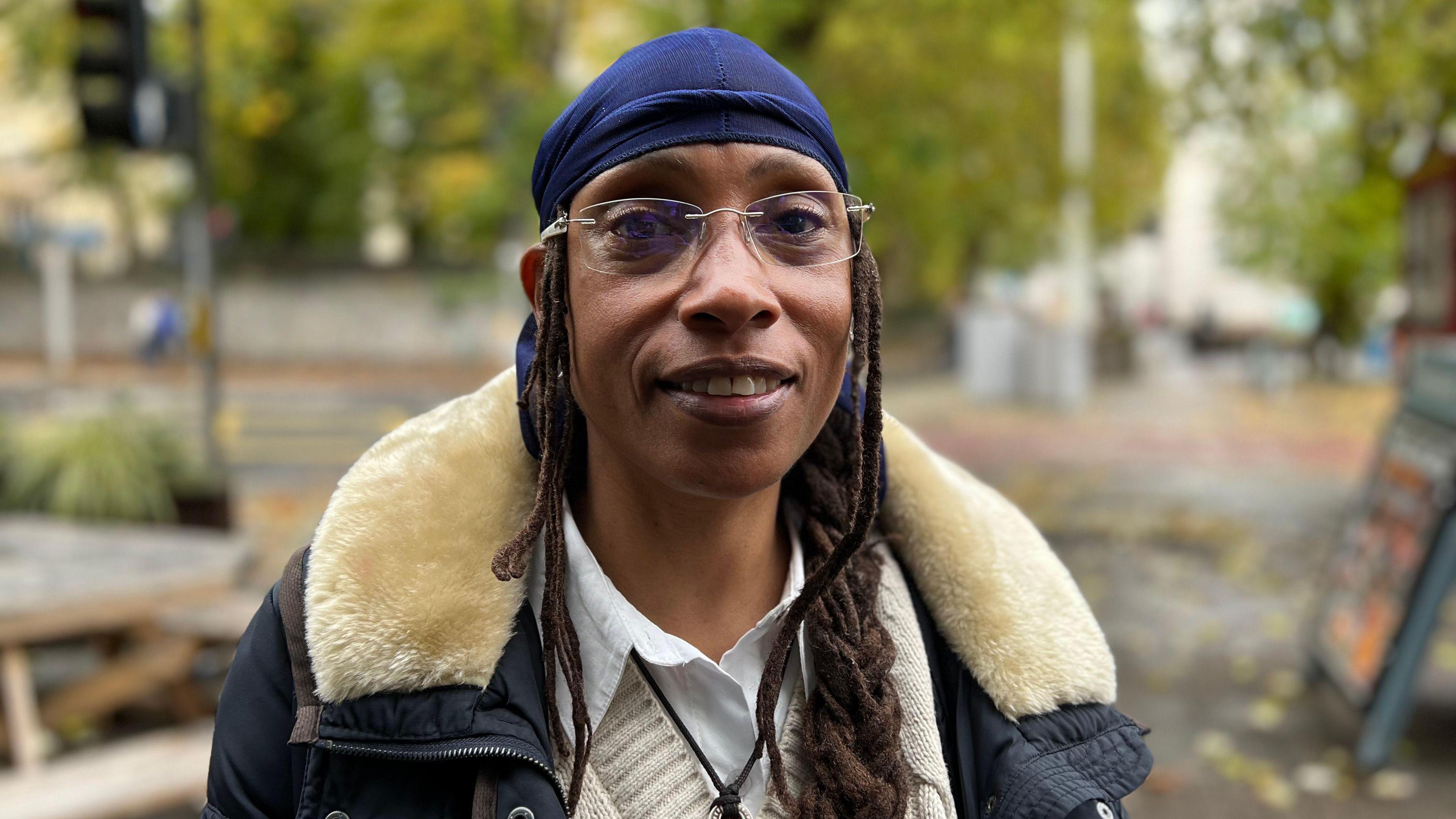
Marcia Brown and two other artists created posters commemorating the Bristol Bus Boycott
Julz Davies, at Curiosity UnLtd, said: "The posters are a wonderful way of democratising the story of the Bristol Bus Boycott, sharing it widely.
"And why not bus stops, given that we're speaking about a bus boycott.
"In the 60th year of Paul Stephenson's sit-in, we find that many of these challenges still exist.
"The fight is still ongoing, in terms of fighting for equality and justice."
'Broke down barriers'
Joyce Morris-Wisdom took part in the bus boycott when she was a pupil in Bristol.
"When I heard about Guy not getting an interview because of the colour of his skin, I wondered if that was going to happen to me when I become older," Ms Morris-Wisdom said.
"I thought this was my opportunity to take part in something historical that would not only benefit myself but other young people.
"We marched from Park Street down into the city centre.
"We broke down barriers, people have started to see people for who they are and not the colour of their skin."
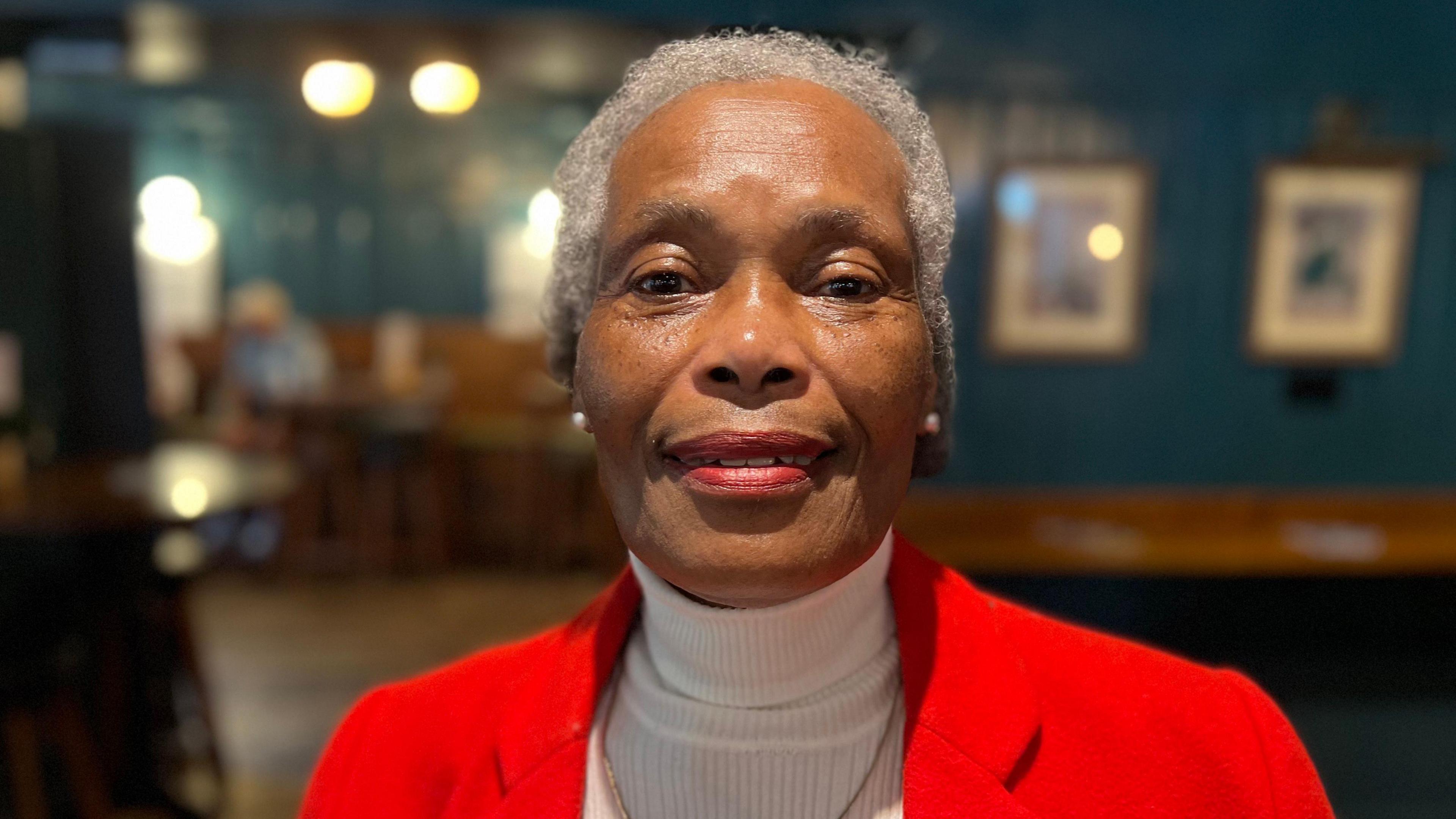
"We broke down barriers," Joyce Morris-Wisdom said
What is the Bristol Bus Boycott?
At the time, the racist policy not to hire Black and Asian people was openly practised across housing, employment, health and education sectors.
The boycott lasted four months across the city and was a watershed moment. Campaigners maintain their efforts directly led to the UK's first ever laws against race-based discrimination.
A new plaque at the Bay Horse was also unveiled on Friday, which is remembering Paul Stephenson's sit-in at the pub, which happened a year after the Bristol Bus Boycott.
He had ordered a pint at the Bay Horse pub - and was told to leave by the manager, who said Black people were "a nuisance".
Mr Stephenson refused to leave until he was served.
The protest, alongside the Bristol Bus Boycott, paved the way for a series of equalities acts in the 1960s and 1970s, which outlawed racial discrimination.
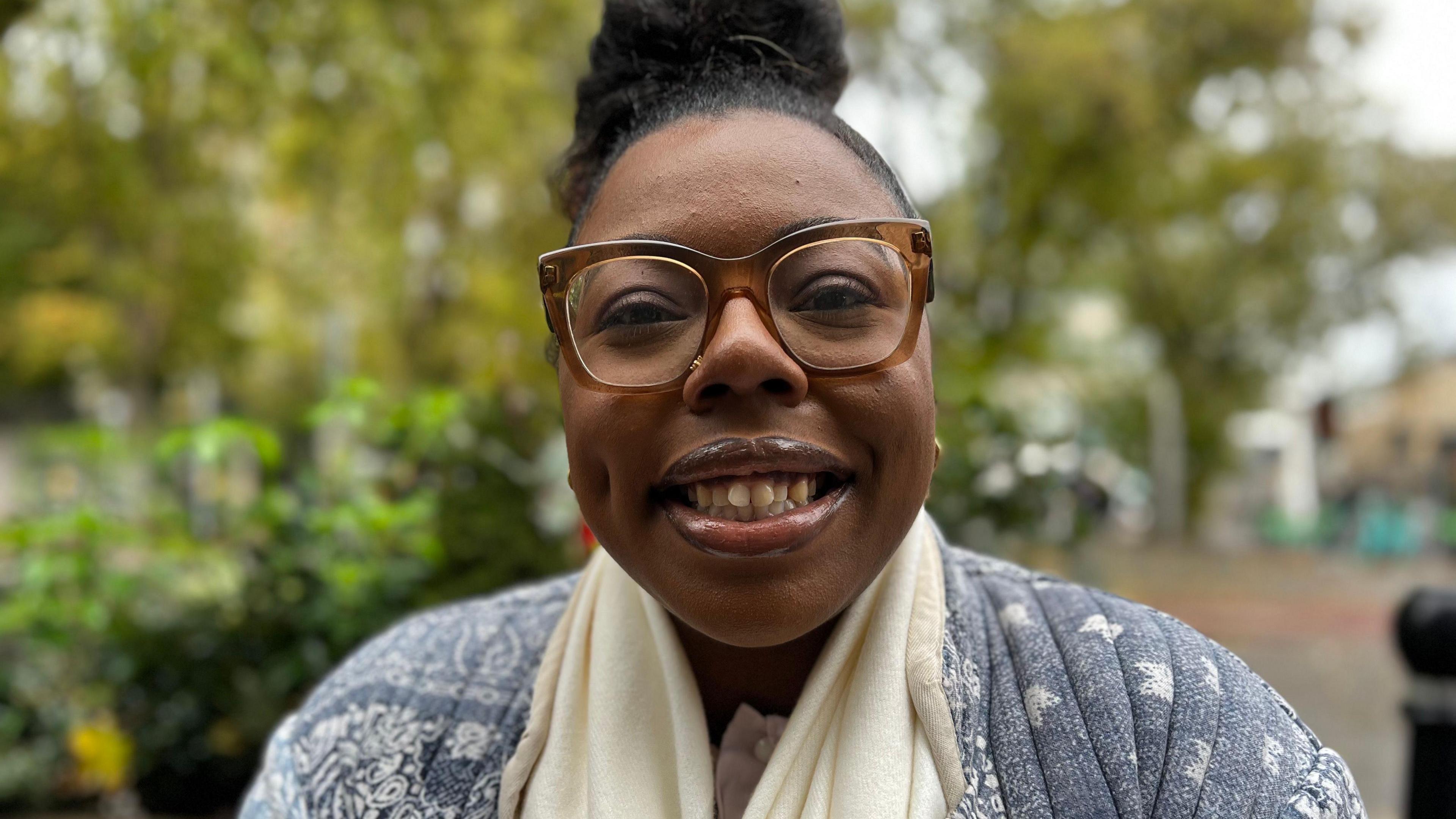
Amara Lawrence said the poster design was a way to bring history to children
Amara Lawrence is one of the competition winners who has her poster design displayed.
She said: "For me, being able to illustrate stories that allow children to understand history and Black identity in a way that doesn't create secondary trauma is something that really inspires me."
Ms Brown added: "It's my parent's generation that brought about change.
"What touched me was people coming together caused to change the law."
The other two winners were Gwen Balmer and Martha, who is 11 years old.
Get in touch
Tell us which stories we should cover in Bristol
Follow BBC Bristol on Facebook, external, X, external and Instagram, external. Send your story ideas to us on email or via WhatsApp on 0800 313 4630.
- Published28 August 2023
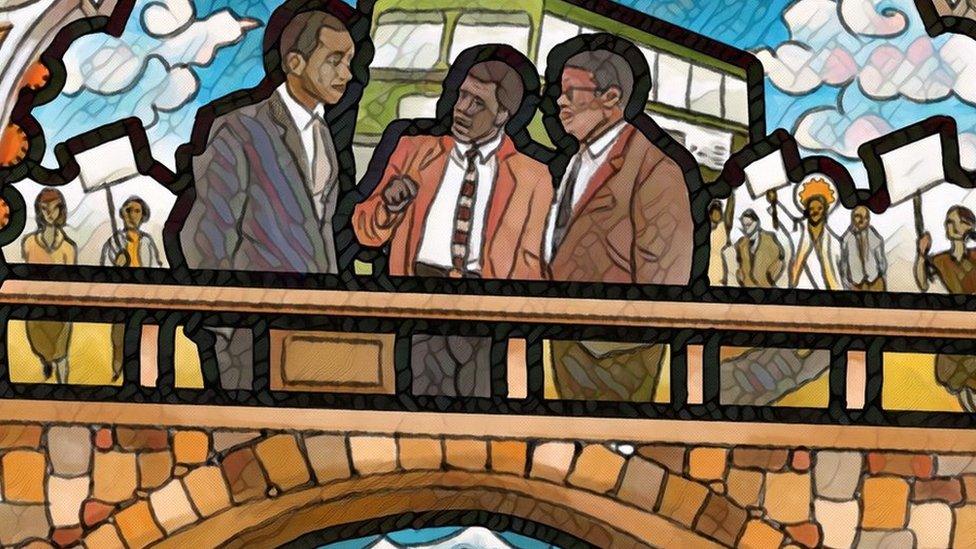
- Published8 February 2024
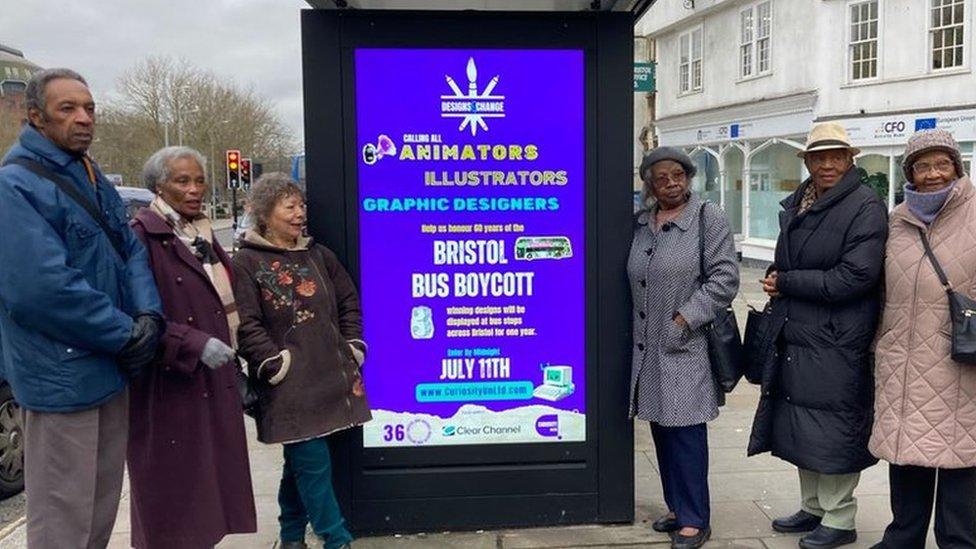
- Published24 October 2023
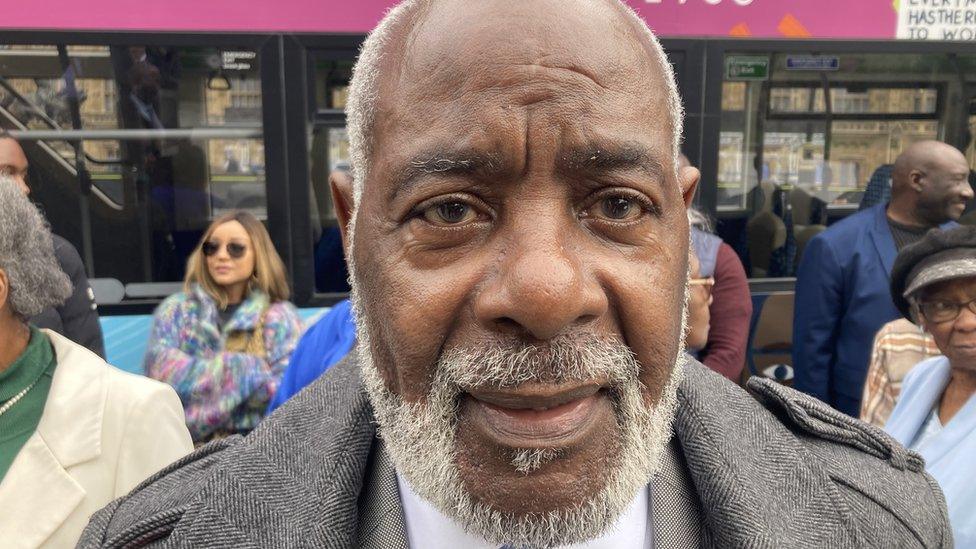
- Published17 November 2022
